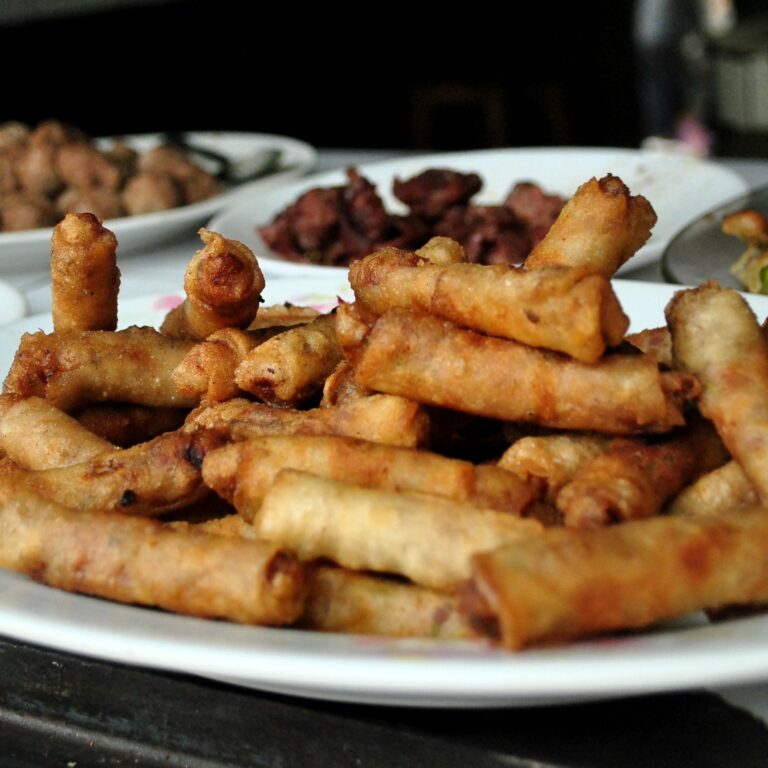Introduction: Malagasy cuisine and its origins
Malagasy cuisine is a vibrant fusion of flavors and ingredients from Southeast Asian, African, and French cultures. The food culture of Madagascar is heavily influenced by the island’s geography, climate, and natural resources. The island nation’s cuisine is known for its diverse range of flavors, textures, and spices that make it a unique culinary experience.
Malagasy cuisine has been shaped by the island’s history, which includes colonization by the French and the arrival of Southeast Asian migrants. The island’s cuisine has also been influenced by the availability of local ingredients, including rice, seafood, zebu, and fruits. Malagasy cuisine has evolved to incorporate these diverse influences, resulting in a rich and flavorful culinary tradition.
Spices and herbs: essential elements of Malagasy cooking
Spices and herbs are an essential component of Malagasy cooking, adding depth and complexity to dishes. The island’s cuisine features a range of spices, including ginger, cinnamon, turmeric, vanilla, and cloves. These spices are used to season stews, curries, and other dishes.
In addition to spices, Malagasy cuisine also incorporates a variety of herbs, including basil, lemongrass, and coriander. These herbs are used to add flavor and aroma to dishes, such as soups and salads. Malagasy cuisine also utilizes a unique combination of spices and herbs to create distinctive blends, such as “sakay,” a spicy chili paste that is a staple in Malagasy cuisine.
Zebu, seafood, and other local ingredients
Zebu, a type of domesticated cattle, is a staple ingredient in Malagasy cuisine. The meat is used in a variety of dishes, including stews, curries, and grilled meat. Seafood is also a popular ingredient in Malagasy cuisine, thanks to the island’s coastal location. Fish, shrimp, and crab are commonly used in dishes such as “ramazava,” a vegetable and meat stew.
Other local ingredients used in Malagasy cuisine include various types of beans, such as black-eyed peas, as well as sweet potatoes, cassava, and yams. These ingredients are often used to create hearty and filling dishes that are popular throughout the country.
Rice: the staple food of Madagascar
Rice is a staple food in Madagascar, and it is a key ingredient in many Malagasy dishes. The island’s cuisine features a variety of rice dishes, including “vary amin’anana,” a dish made with rice, leafy greens, and ginger. Rice is also used to make “vary sosoa,” a type of rice porridge that is often eaten for breakfast.
In addition to being a staple ingredient in Malagasy cuisine, rice is also an important cultural symbol in Madagascar. Rice is often used in traditional ceremonies and is considered a symbol of wealth and prosperity.
Unique flavors in Malagasy dishes
Malagasy cuisine features a range of unique flavors that are distinctive to the island. One of the most notable flavors is the use of tamarind, a sour fruit that is used in a variety of dishes, including stews and sauces. Tamarind is used to add a tangy and slightly sweet flavor to dishes.
Another unique flavor in Malagasy cuisine is “voatsiperifery,” a type of pepper that is grown only in Madagascar. This pepper has a distinctive, fruity flavor and is often used to season meats and other savory dishes.
Conclusion: the diversity and richness of Malagasy cuisine
Malagasy cuisine is a unique and vibrant culinary tradition that has been shaped by the island’s history, geography, and natural resources. The cuisine features a rich variety of flavors, spices, and local ingredients that make it a unique culinary experience. From the use of tamarind and voatsiperifery pepper to the incorporation of zebu and seafood, Malagasy cuisine is a celebration of the island’s diverse culinary heritage.

